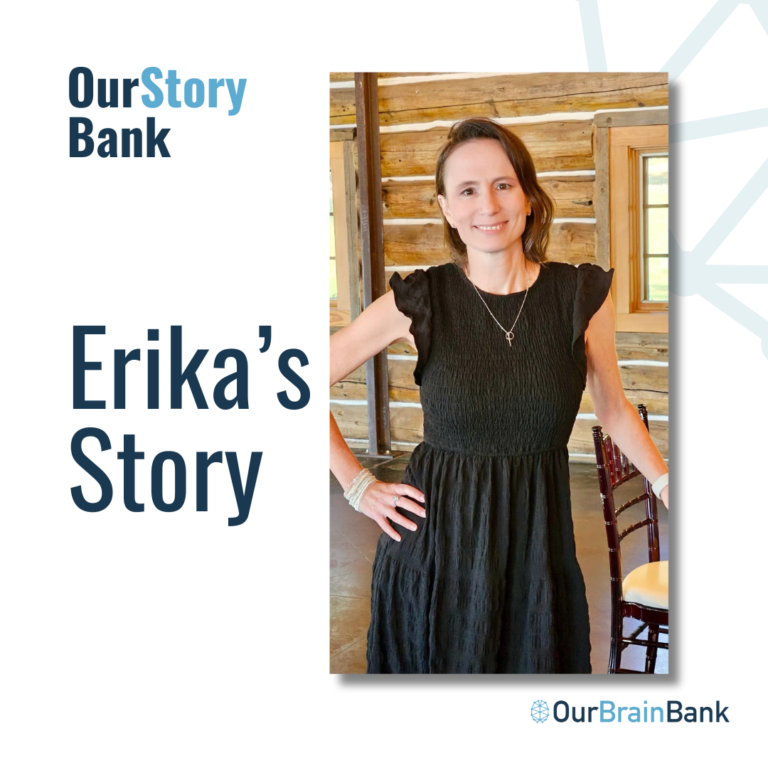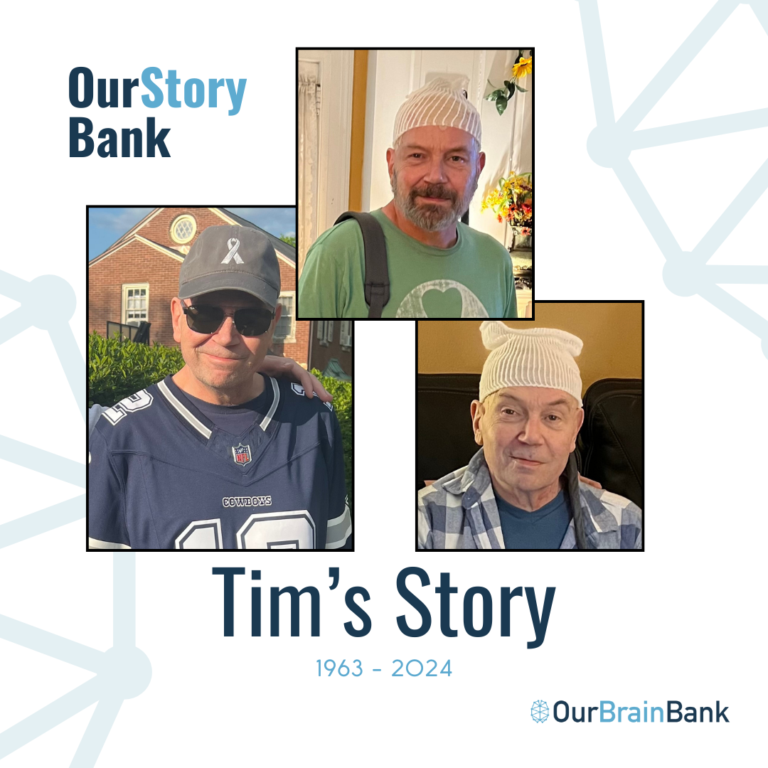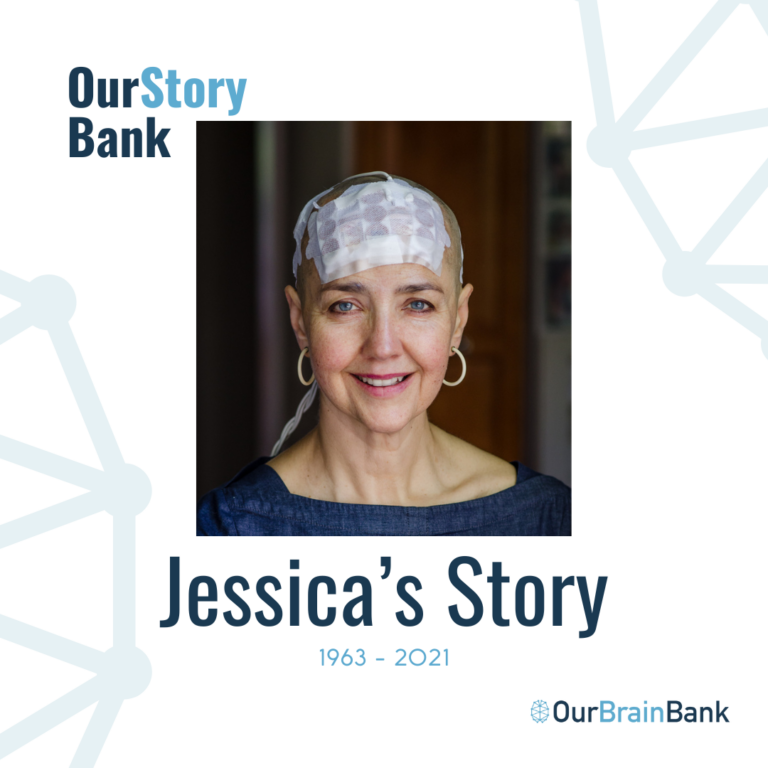PERSONAL STORIES
Debbie Coulson’s Story.
NEWS 21 February 2023
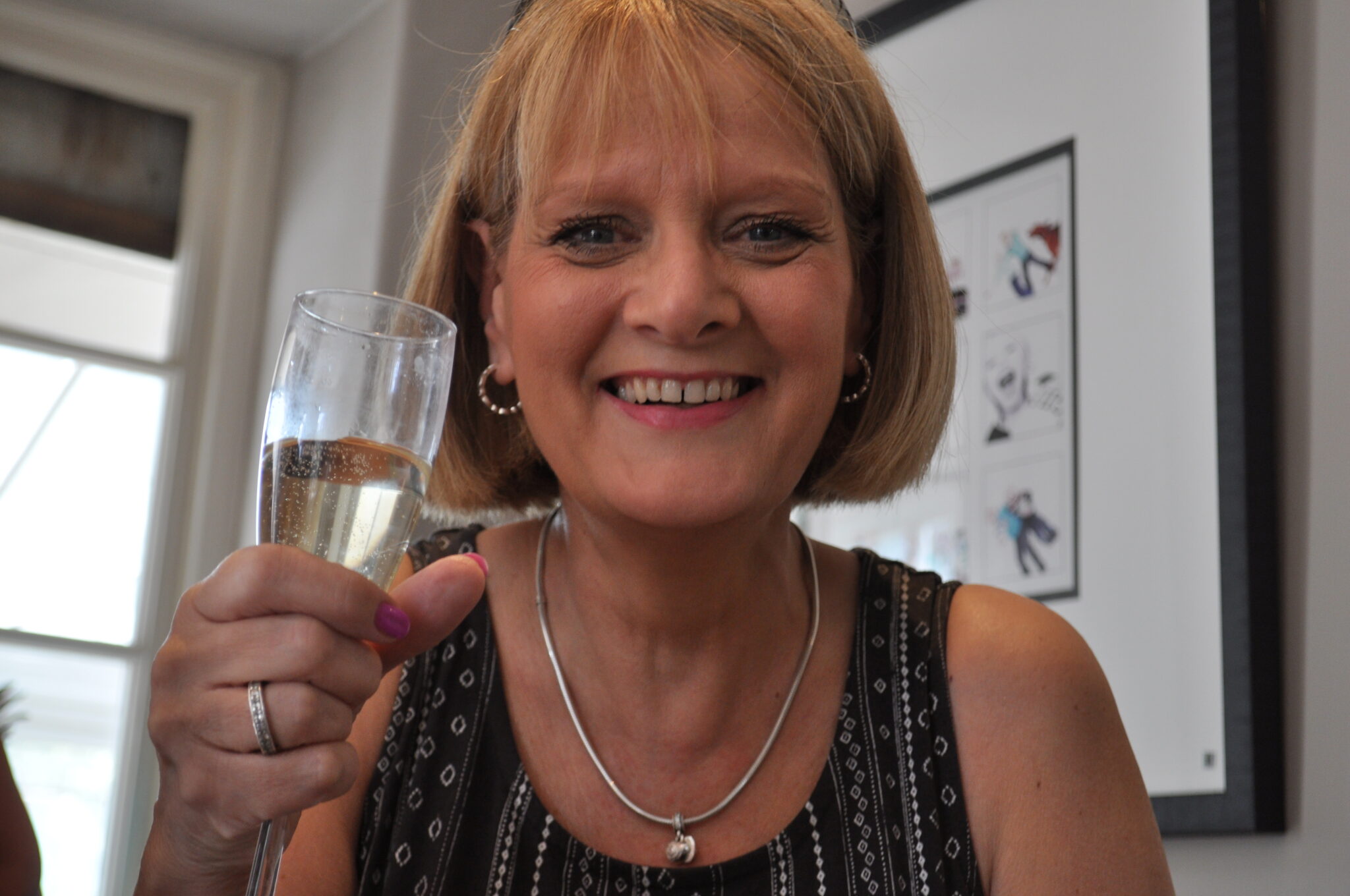
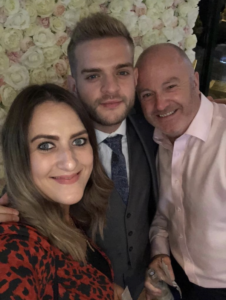 Debbie (Debs) Coulson, 58, from Colchester was diagnosed with glioblastoma in 2017. Here, her son Matthew Grove, daughter Vicky Davies Jones and Deb’s partner Phil Holding share their reflections on Debbie’s GBM journey.
Debbie (Debs) Coulson, 58, from Colchester was diagnosed with glioblastoma in 2017. Here, her son Matthew Grove, daughter Vicky Davies Jones and Deb’s partner Phil Holding share their reflections on Debbie’s GBM journey.
Vicky: My mother Debbie was a kind and loving person. She lived in Colchester and was from a big family of six children. I had a very close relationship with her, and we shared a love of shopping for clothes. She adored me and my brother and we would see her every weekend. I lost mum six weeks before I got married and I now have a little boy who, unfortunately, mum didn’t get to meet.
Matt: My name’s Matt, and Debbie was my mum, I lived with her in Colchester.
Phil: Deb and I worked together at a construction company for many years. It’s partly my business and she was our PA and our first employee. I knew Deb and Matt well. She would leave at 3pm to pick Matt up from school and he would sit in the corner with a chocolate and do his homework while she finished her work and took him home. We had known each other for 20 years and were good friends. Then after her marriage broke up, we got together. It was shortly after that she was diagnosed with glioblastoma. We moved in together because I wanted to be with her, and I also wanted to help her through what she was dealing with. We lived together for the 13 months from her diagnosis, through her treatment and to the end of her life.
Phil: Debbie was always on the ball – nothing ever got by her. We first noticed something was wrong when a colleague started to notice a few issues at work – things she had missed. It just wasn’t like her. She went to the doctor twice and then three times. Vicky was planning her wedding at the time, and Debbie was helping with that. We thought she probably had too much on at work and in her life with the wedding. She left work on two occasions because she was distressed and tired.
Matt: Over a few months we started to see some cloudiness in her eyes. One time she fainted, and we took her to the hospital by ambulance. My sister and I went to make sure everything was ok, and we were not expecting much to be honest. I remember sitting in the waiting room having a bit of a joke with my sister waiting for mum to come out and be right as rain. But when the doctor asked us to come in, I could tell straight away something was wrong. I remember she whispered to Vicky: ‘I think they’ve found something’. And that was it. The doctor told us they had found a tumour. They weren’t sure what it was or if it was benign or not. One moment we were having a joke and the next, things became very serious.
Phil: Fortunately, Deb had private health insurance and was immediately seen by a specialist in London in Harley Street. He delivered the news in the way that only someone like he can. In that room our world fell apart. And from there on, we knew what we were dealing with.
But thinking back, I don’t think Deb ever heard the prognosis. She may have blocked it out because in the whole time we had together, we made plans for lots of things – holidays we were never going to take. And it was sad because I knew it was never going to happen.
Matt: I don’t think she heard. I think Mum was struggling to comprehend then. The clinical nurse said it wouldn’t be uncommon for someone to just to block out such devastating news.
She had what they called the gold standard treatment, which was radiotherapy, surgery and chemotherapy. We travelled up to London for treatment and always tried to make an event of it, by having dinner or going to see something in London.
Phil: After her surgery I was amazed to find her awake and sitting up in her room just a couple of hours later, that blew my mind. It went well and we were all so elated.
Deb’s brother Andy found everything out about the condition and connected us with consultants and doctors all over the world. It was hard knowing there were other possible treatment options. First, we found a trial, but Deb couldn’t go on it. And we very nearly got on a plane to Germany to meet a doctor there for a treatment that was going to cost half a million pounds. We didn’t go because we were told that it might give her another month or two – or it might not. How do you make a financial decision on extending someone’s life? As a family we would have had to sell our house and put all our resources together, and if we knew for sure she was going to have that month then we would have done it.
Another treatment she had was prescribed very, very rarely – it was called valganciclovir and it costs about £1000 a week. We went back to the GP who had missed the tumour several times at the beginning. We said we think this treatment will be of benefit. We need it and it’s expensive. We also pointed out they had missed it at the beginning. The doctor smiled and prescribed it for her that afternoon, and we didn’t pay a penny for it
Despite the treatment and her diagnosis Deb led a relatively normal and happy life enjoying the daily things we all enjoy, like eating out, family gatherings, time with friends, shopping, and holidays and coped very well, almost without a grumble. It was the last 8 to 10 weeks of her life where her decline clearly affected her enjoyment of life.
Unfortunately, because of the nature of what it is, the tumour came back. We had a meeting to discuss a scan result and the doctor said it’s not good. The cancer had come back and doubled in size in two weeks. Eight weeks from there, we lost her. At the end it was so quick.
I’ve got so many good memories in those 13 months, we all spent a lot of time with Deb, and we were so lucky because she was operating as normal for 11 of those 13 months.
Vicky: For me, looking back it was all about her happiness. It was good seeing her with Phil. They moved in together and went on holidays. He was her rock. If she was having a bad day, she wouldn’t want me or Matt there, but she’d want Phil there. That wasn’t tough for me at all – I just wanted her to be happy.
I think the hardest thing for me was accepting it for what it was. I think that’s why I struggled more when there were downturns because in my head, I thought she might get better. And I think the quicker you accept it for what it is and deal with that, the better.
Phil: When I look back, Debbie never complained about her cancer or the treatment. The worst thing for her was the weight gain when she was on steroids. In her last year, she cried in front of me once and that was because her clothes didn’t fit because she was putting on too much weight.
But we all kept her laughing. One of Deb’s brothers Paul kept us all going with his jokes. One day he said yoga is going to help us. So, he bought himself a yoga kit and posted videos of him dressed up to do yoga on the WhatsApp group. And it just made us all laugh in the face of adversity. I’m glad we tried to have some fun because we wanted to enjoy the time we had with Deb.
